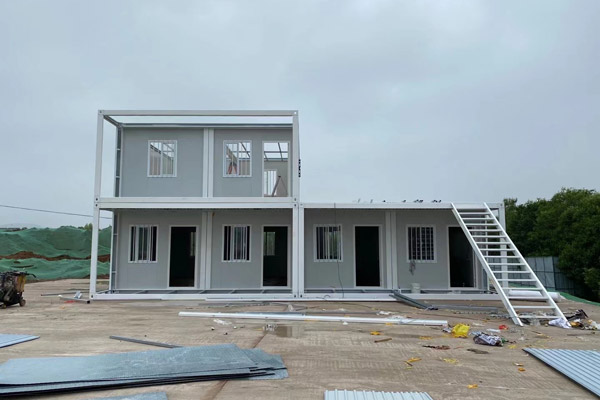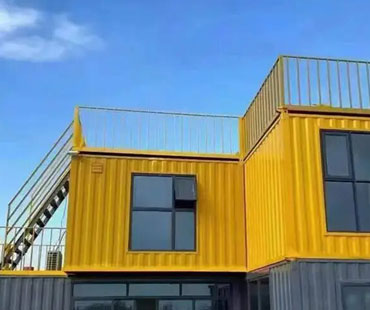In today’s globalized economy, the container industry stands as one of the most crucial pillars of international trade and logistics. From transporting goods across oceans to facilitating land-based freight, containers have become indispensable in ensuring the smooth flow of commodities between nations. However, beyond their logistical value, the container industry now plays an increasingly significant role in promoting sustainable development, addressing global challenges such as carbon emissions, resource efficiency, and waste reduction.
1. Containers as a Foundation for Efficient Global Trade
The modern container system, standardized since the mid-20th century, revolutionized global commerce by enabling seamless multimodal transportation—allowing cargo to move easily between ships, trucks, and trains. This innovation dramatically improved efficiency, reducing transportation costs, transit times, and energy consumption.
Efficiency is the first step toward sustainability. Fewer trips, optimized cargo loads, and reduced idle time directly translate into lower fuel use and emissions. By making global supply chains more integrated and resource-efficient, the container industry has laid a vital foundation for greener, more sustainable trade operations worldwide.
2. Reducing Carbon Footprint through Innovation
The shipping industry, responsible for over 80% of world trade volume, is also a major source of carbon emissions. As a key component of this sector, the container industry has been actively pursuing technologies and systems that reduce environmental impact.
Lightweight materials are being introduced to lower the total mass of containers, improving fuel efficiency.
Smart container tracking systems help optimize routes, avoid congestion, and minimize unnecessary mileage.
Energy-efficient ports are incorporating renewable power sources, such as solar panels and electric cranes, to reduce operational emissions.
Furthermore, leading shipping companies are now investing in low-carbon fuels such as liquefied natural gas (LNG), biofuels, and even hydrogen-based propulsion systems—initiatives that align closely with the goals of the Paris Agreement and the United Nations Sustainable Development Goals (SDGs).
3. Circular Economy: Reuse, Recycle, and Repurpose
The container industry is an exemplary model of circular economy principles. A standard steel container can last between 15 to 20 years, after which it can be repurposed rather than discarded. This reuse not only reduces waste but also minimizes the need for new raw materials and manufacturing energy.
Retired containers are now widely used for modular construction—from pop-up shops, mobile offices, and affordable housing to emergency shelters and art installations. Each repurposed container represents a reduction in construction waste and a creative approach to urban sustainability.
Moreover, the recycling of decommissioned containers contributes to a significant reduction in metal waste. Steel recovered from old containers can be melted and reused, maintaining material value within the industrial ecosystem.

4. Smart Technologies and Sustainable Supply Chain Management
Digital transformation is another key driver of sustainability within the container industry. The integration of Internet of Things (IoT) devices, blockchain, and big data analytics has made supply chains more transparent, traceable, and efficient.
IoT-enabled containers can monitor temperature, humidity, and shock levels, reducing spoilage of perishable goods and minimizing waste.
Blockchain-based systems improve data accuracy and reduce paperwork, lowering administrative energy use and carbon output.
Predictive analytics help shipping companies anticipate demand fluctuations, allowing better fleet management and optimized fuel consumption.
These advancements enable a shift from reactive to proactive logistics, making container operations both economically and environmentally sustainable.
5. Green Infrastructure and Eco-Friendly Ports
Sustainability in the container industry also extends to the infrastructure supporting it—especially ports and intermodal terminals. Around the world, ports are transforming into eco-friendly hubs through smart design and technology adoption.
Examples include the use of shore power systems, allowing docked ships to plug into local electricity grids instead of running diesel engines, thereby cutting emissions dramatically. Ports are also implementing wastewater treatment systems, renewable energy microgrids, and electrified cargo-handling equipment, all contributing to the global effort to decarbonize logistics chains.
Such initiatives demonstrate that sustainable development in the container industry is not limited to ships or boxes—it is a systemic effort involving every stage of the global logistics network.
6. Social and Economic Dimensions of Sustainability
Beyond environmental concerns, the container industry also supports social and economic sustainability. By facilitating international trade, it helps developing countries access global markets, creating jobs, generating income, and improving livelihoods.
Moreover, innovations such as modular container housing offer solutions to urbanization challenges, providing affordable and rapid-deployment homes in densely populated or disaster-affected regions. This reflects how the industry contributes not only to environmental goals but also to human welfare and social resilience.
7. The Future: Toward a Carbon-Neutral Container Industry
The path toward a sustainable container industry is still evolving. Future goals include achieving carbon-neutral shipping, fully recyclable container materials, and AI-driven logistics systems that eliminate waste across the supply chain. Industry stakeholders are collaborating with governments and international organizations to develop frameworks and incentives for cleaner, smarter, and more equitable operations.
Emerging technologies such as autonomous electric ships, 3D-printed lightweight containers, and AI-powered cargo optimization systems are poised to redefine the industry’s sustainability profile in the coming decades.
The container industry, once a symbol of globalization and mass production, is now becoming a beacon of sustainability and innovation. Through smarter design, efficient operations, and commitment to environmental stewardship, the sector is proving that economic growth and ecological responsibility can coexist.
As the world continues to seek a balance between industrial progress and environmental protection, the container industry will remain at the forefront—driving sustainable logistics, enabling circular economies, and building a cleaner, more connected planet for future generations.


